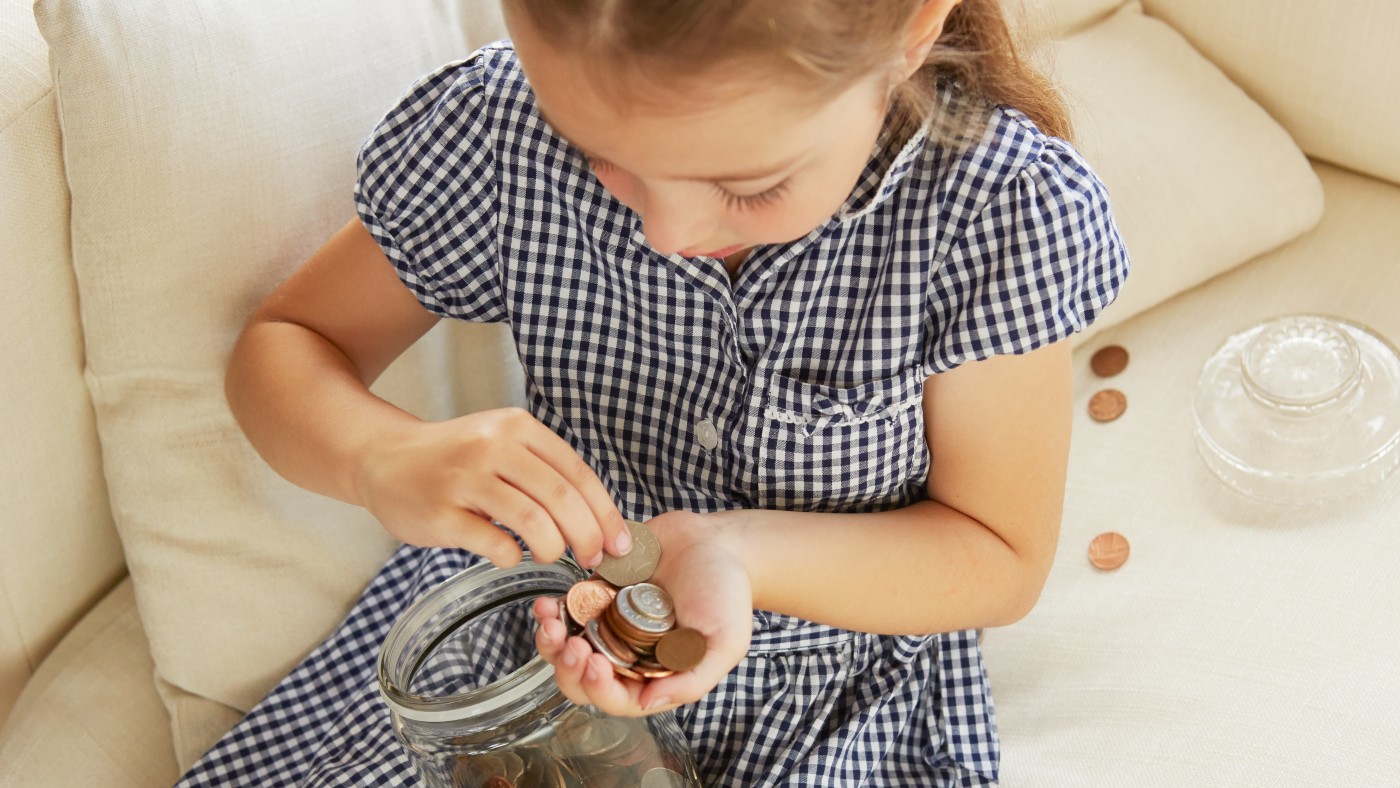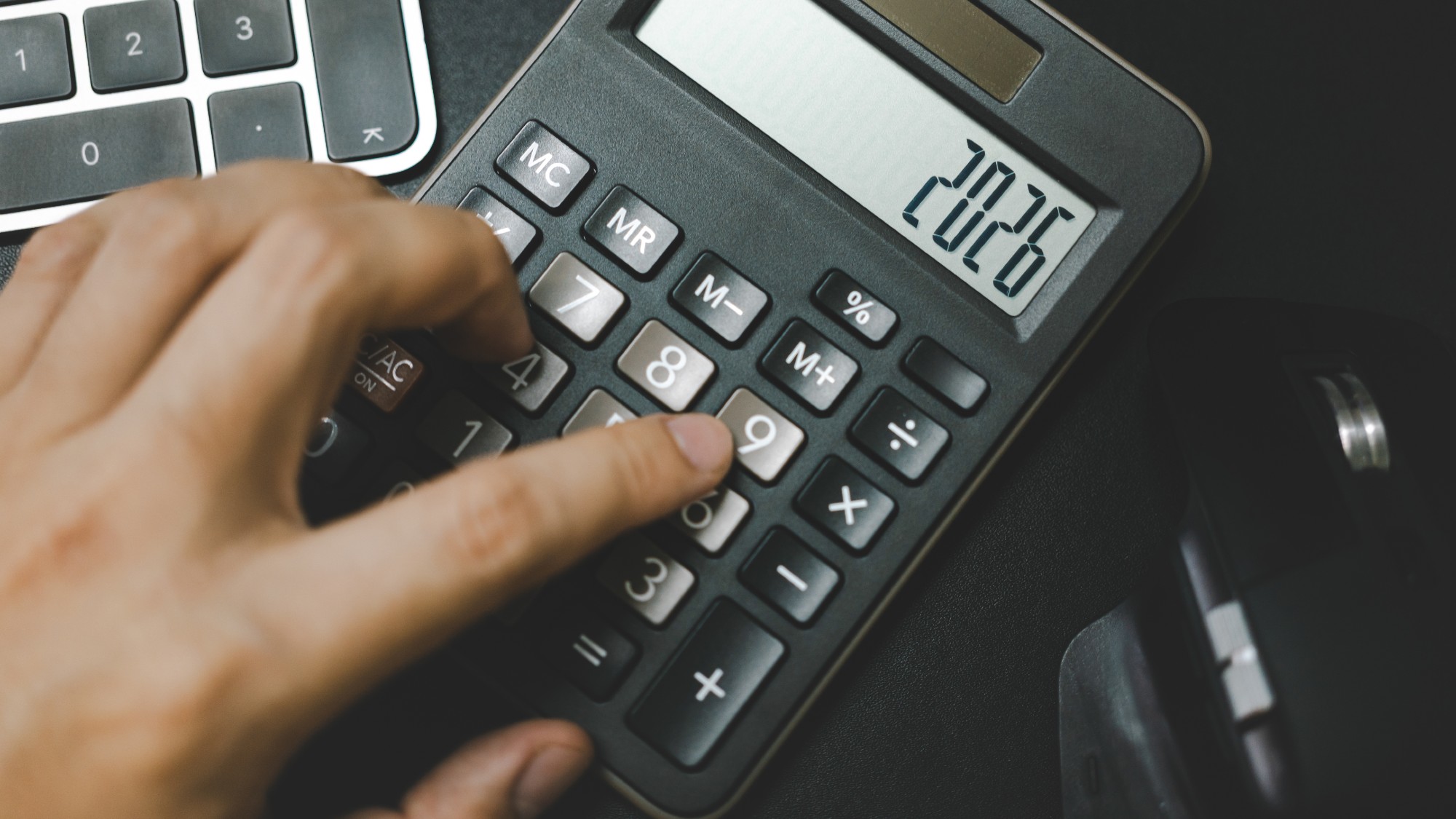How to teach your children about money
An understanding of numbers, cash and savings can be picked up early

A free daily email with the biggest news stories of the day – and the best features from TheWeek.com
You are now subscribed
Your newsletter sign-up was successful
Children may not learn much about managing money at school but there are important financial lessons you can teach them at home.
Research by University of Cambridge academics shows that children as young as seven can "grasp the value of money, how to count it and what it means to earn money and exchange it for goods", said MoneyWeek.
Personal finance lessons aren't compulsory in primary school though so you can't rely on teachers to help your kids with this, the financial website added, so you will need to "take matters into your own hands" to make your child financially savvy.
The Week
Escape your echo chamber. Get the facts behind the news, plus analysis from multiple perspectives.

Sign up for The Week's Free Newsletters
From our morning news briefing to a weekly Good News Newsletter, get the best of The Week delivered directly to your inbox.
From our morning news briefing to a weekly Good News Newsletter, get the best of The Week delivered directly to your inbox.
It is a "scary thought", said Good Housekeeping, that parents and carers are seen by children as the main source of advice about money.
Teaching your children about money can help make them more financially confident in the future, said The Times Money Mentor plus "it might even motivate them to help around the house".
Here are some tips to help your child learn the basics of budgeting and managing their money.
Keep it age appropriate
Toddlers and young children can be introduced to the "idea of money" with toy cash registers and playing shop at home, said NatWest’s My Money Sense blog.
A free daily email with the biggest news stories of the day – and the best features from TheWeek.com
But they start to develop a "deeper understanding of numbers" from age five and six, said MoneyHelper, making it an ideal age to start teaching "good money management". It will still need to be fun – but you can start integrating more money-related skills into everyday life, the financial guidance website said, for example, saving for a new toy or turning shopping into a learning experience.
By age seven or eight, children will be starting to learn the difference between "'wants' and 'needs'", explained Unbiased, and it's a good time to talk about getting what they want through "earning and saving".
From ages nine to 12, children will want to "demonstrate their independence", so responsibility can shift to their own "spending and saving choices", the financial website added. This could include helping them see that spending on one thing means they won't have money for something else and illustrating the "impact of impulse buys" by getting them to wait an extra day before buying expensive items to check they really want and need it.
By the time they reach their early teens in secondary school, children will have "more responsibility, more choices about their lives, including their own money", said Good Housekeeping, and they will be "learning from their mistakes" through tools such as managing their own mobile allowances, prepaid cards, money apps and current accounts.
The pocket money debate
Giving kids pocket money helps "slowly build financial skills", said GoHenry, to help them become "savvy about spending and saving".
But don't just hand over cash, said Unbiased, as "children who are just given pocket money are much less likely to save".
This is a chance to introduce the idea of "earning and learning", said Barclays, by rewarding your child for doing chores around the house and encouraging them to save for what they want. You could make an "appropriate reward" depending on the chores being completed.
Rather than just focusing on earning money for tasks, parents should also help build a "healthy money mindset", said the Daily Telegraph Emma Gosling, financial coach, therapist and mum, told the newspaper, "When our eight-year-old gets money for birthdays and Christmas, we explain to him he needs to save up for bigger things he wants. It's important to be open with children about money, and to model good habits."
Also consider how kids spend money these days, said The Guardian. Many have "little contact with cash" and there are various payment cards and apps with pocket money and budget tools "that have emerged to serve this market".
Money lessons never end
Just because a child leaves home or becomes an adult, that doesn't mean money lessons have to stop, added MoneyHelper.
Your adult children may still be living with you to save for their own home or pay off debts, so money is a "topic that often needs revisiting", whatever the age.
Marc Shoffman is an NCTJ-qualified award-winning freelance journalist, specialising in business, property and personal finance. He has a BA in multimedia journalism from Bournemouth University and a master’s in financial journalism from City University, London. His career began at FT Business trade publication Financial Adviser, during the 2008 banking crash. In 2013, he moved to MailOnline’s personal finance section This is Money, where he covered topics ranging from mortgages and pensions to investments and even a bit of Bitcoin. Since going freelance in 2016, his work has appeared in MoneyWeek, The Times, The Mail on Sunday and on the i news site.
-
 Iran and US prepare to meet after skirmishes
Iran and US prepare to meet after skirmishesSpeed Read The incident comes amid heightened tensions in the Middle East
-
 Political cartoons for February 4
Political cartoons for February 4Cartoons Wednesday’s political cartoons include multiplying measles, nationalized elections, and more
-
 Trump demands $1B from Harvard, deepening feud
Trump demands $1B from Harvard, deepening feudSpeed Read Trump has continually gone after the university during his second term
-
 3 tips to help protect older family members from financial scams
3 tips to help protect older family members from financial scamsthe explainer Prevent your aging relatives from losing their hard-earned money
-
 Saving for a down payment on a house? Here is how and where to save.
Saving for a down payment on a house? Here is how and where to save.the explainer The first step of the homebuying process can be one of the hardest
-
 What would a credit card rate cap mean for you?
What would a credit card rate cap mean for you?the explainer President Donald Trump has floated the possibility of a one-year rate cap
-
 Do you have to pay taxes on student loan forgiveness?
Do you have to pay taxes on student loan forgiveness?The Explainer As of 2026, some loan borrowers may face a sizable tax bill
-
 Planning a move? Here are the steps to take next.
Planning a move? Here are the steps to take next.the explainer Stay organized and on budget
-
 What should you look out for when buying a house?
What should you look out for when buying a house?The Explainer Avoid a case of buyer’s remorse
-
 What to look for in a reliable budgeting app
What to look for in a reliable budgeting appThe Explainer Choose an app that will earn its place in your financial toolkit
-
 3 smart financial habits to incorporate in 2026
3 smart financial habits to incorporate in 2026the explainer Make your money work for you, instead of the other way around